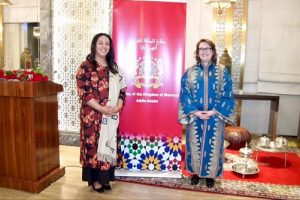
BY YOHANES JEMANEH
Several art pieces have been churned out to commemorate the Victory of Adwa, a military prowess that Ethiopians showcased over a colonial power in 1896. Among them is found Adwa, a song produced by Munit Mesfin. The music was mainly produced to give a tribute to the Victory of Adwa.
Munit did not only write the song, she is also the co-producer together with composer Abegaz Kebrework Shiota and Langano Studio. This song amplifies a sense of braveness as it conjures up in mind the heroic fight of former Ethiopians against foreign enemy to protect their freedom.
A saxophone tune in a similar rhythm with a war cry Ethiopians chant is an intro of the song. In fact it is her elder brother (famous saxophonist) Jorga Mesfin who produced this fascinating sound.
It seems the singer or the composer intentionally inserts this to reenact the tone of the war. The producers do so using accompanying voices that give lively mood to the song and transport the listener to the battlefield in an imaginative wing.
A war cry is an important culture of Ethiopians that they embolden themselves with to confront a certain enemy heroically. The people used this to be plucky when they get locked in warfare, said Munit in an interview she gave to local media. Therefore, mixing the war cry in the song was intentional and a must to give a war vibe to the music. And doing so made us successful.
She also used the phrase “Wa Yachi Adwa!” extracted from the poem of Tsegaye G. Medhin, patriotic poet and playwright who came up with several artistic pieces about Adwa. And Wa Yachi Adewa was an Amharic irritation and condolence for the lives we lost and the remarkable victory we got.
The song is Munit’s “loving tribute to the Great African Victory of ADWA, the sacrifices and the bravery of our forefathers and mothers. A call on our responsibility to honor their legacy and be a great generation that makes new positive history, uplifting ourselves, our communities, our nations, our continent and our world,” as she wrote in the story section while she posted it on youtube on 2 March 2017 where it got over 34, 0000 hits.
The comments under the song express gratitude to the singer for commemorating and honoring the brave forefathers. Among them are “This is stunning! I am in tears. You, the song, your commitment – all so beautiful and compelling.” “Ethiopia will rise again, we are not done, bless you sister” “Thankyou, I had chills when I heard this. My dad had lost his heroic father to Adwa. You did a wonderful song,” and so on.
In her lyric, Munit starts her verses narrating the ill-will of European colonial powers in their deal over the scramble for Africa. “It was in 1884 somewhere in Berlin, The so called civilized men came to do an unspeakable thing,” she stated. She believed that the European powers were confident of their guns that is why they tried and became successful to colonize Africans and exploit their labor and abundant natural resources.
However thanks to brave Ethiopian forefathers who won these atrocious enemies, many Africans and whole people who were under colony had got the light that lead to the path to get out of the darkness of colonialism.
Not only this, Ethiopians had assisted many African struggles against the colonial system. It is this virtue that inspired the singer to tribute the forefather who paid sacrifice both for themselves and their African brothers and sisters. “Colonization slavery, with unity and bravery, they sacrifice for our dignity, in this African victory,” the lyric stated.
Munit has written the song mainly in English and in Amharic languages. “The main reason to write the song in Amharic is to tell the world that we are not colonized so that we have our own language with its own alphabet. And the English version come to narrate the fact of the black victory to the colonizers in their own language,” Munit noted.
The song ends flickering hope in the minds of the generation noting that “we are the children of brave forefathers and foremothers so that we will make our own successful history in the future.” Although she didn’t mention anything about what kind of success she is expecting the generation to achieve, one can easily understand that she is talking about economic progress since there seems no room for war in modern times.
Of course, Adwa is the first black victory that inspired the whole people who were under colony across the world to fight for freedom. And this victory works even these days since many nations are under neo-colonialism that exploit the natural and intellectual resource of Africans.
Therefore we need more artistic pieces that remember black victory to stimulate Africans to stand in unison to get out of poverty and achieve victory over neo-colonialism equally struggling with the developed world.
The Ethiopian Herald March 2/2021





